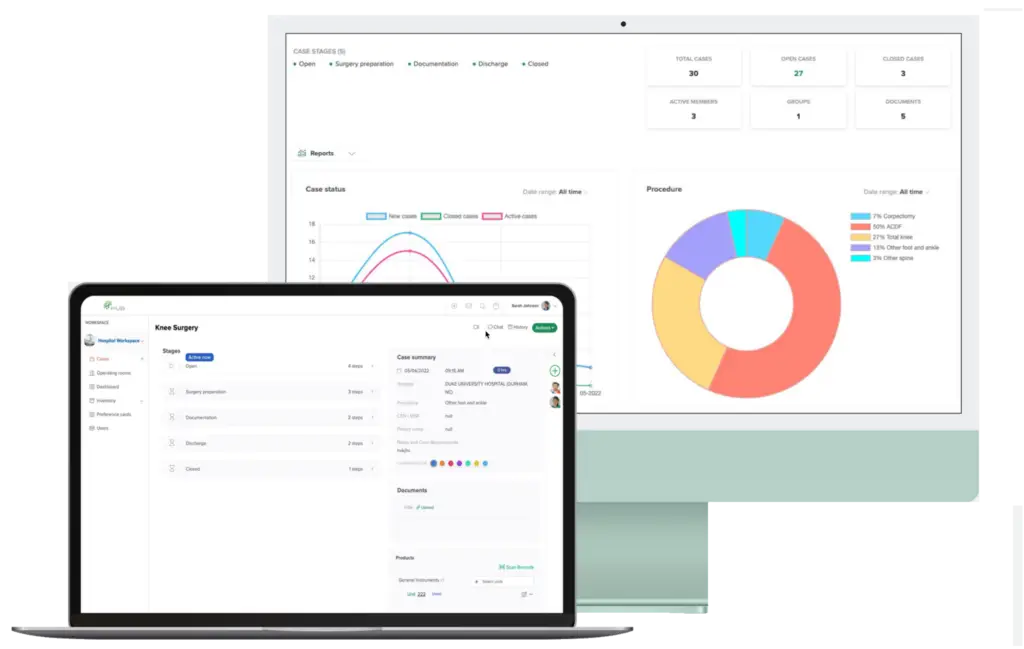Introduction
Managing patient referrals efficiently is critical for providing timely care, especially in high-demand specialties like orthopedics. One of our recent collaborations with a large orthopedic practice highlighted the significant challenges that many healthcare organizations face with referral management. This case study outlines the referral management problems encountered by this practice, the tailored solutions we provided, and the substantial improvements achieved through our platform.

The Problem: Referral Delays and Inefficiencies
This orthopedic practice handles thousands of patient referrals annually, but their existing system faced numerous inefficiencies, including:
- Inconsistent Intake Methods: Referrals were received through various channels like electronic faxes, physical faxes, and the EPIC system, leading to inconsistent data capture and processing delays.
- Manual Processing Bottlenecks: Sorting, indexing, and entering referrals into the EMR system was time-consuming and prone to human error.
- Fragmented Imaging Workflow: Imaging data from multiple sources often required manual handling, particularly for out-of-network providers relying on physical CDs.
- Authorization Delays: Insurance verification and authorization were complex and required manual tracking, delaying patient scheduling.
- Scheduling Challenges: Coordinating appointments among specialists, nurses, and surgeons was difficult, compounded by inefficient communication and limited scheduling tools.
- Patient Communication Gaps: Patients without digital access required additional follow-ups, and manual preparation of information packets increased costs and risks of errors.
The result? An average referral-to-diagnosis time of up to 180 days, negatively impacting patient health and satisfaction.
Our Solution: HUB Healthcare’s Referral Management Platform
We implemented our HUB Healthcare platform in a phased approach to address these challenges directly:
Phase 1: Immediate Improvements with HUB
- Automated Referral Screening and Management: HUB’s automated tools screened referrals based on predefined criteria, reducing manual workload by 20% and saving approximately $50,000 annually.
- Self-Scheduling Portal: Patients could book their appointments directly through HUB once their documentation was complete, reducing wait times and enhancing patient satisfaction.
- Automated Communication: HUB provided real-time status updates to patients and providers, reducing the need for follow-up calls and emails.
- Centralized Imaging Management: HUB streamlined the upload and sharing of imaging data, minimizing delays caused by manual handling.
Phase 2: Long-Term Integration with EPIC
- EPIC Integration: Over 18 months, HUB was integrated with the EPIC system, ensuring a seamless, unified platform for managing referrals, communications, and scheduling.
- Continuous Improvement: Data from HUB was analyzed to refine workflows continuously, reducing errors by 30% and saving an additional $75,000 annually.
Results: Tangible Improvements in Efficiency and Patient Care
The impact of our platform was significant:
- Reduced Referral Processing Time: Automation reduced time spent on each referral from 65 minutes to 35 minutes, saving over $1,000 per day.
- Enhanced Patient Experience: Patients gained transparency into their referral status, reducing frustration and improving satisfaction scores.
- Operational Efficiency Gains: The practice achieved over $100,000 in annual revenue increases by optimizing appointment scheduling and reducing cancellations.
Conclusion
This case study demonstrates how HUB Healthcare’s platform can transform referral management in high-volume healthcare settings. By automating workflows, improving communication, and integrating with existing systems, we help healthcare organizations reduce inefficiencies, save costs, and enhance patient care.
How HUB Healthcare Can Help

HUB Healthcare offers a comprehensive solution designed to enhance communication in healthcare, streamline care coordination, and improve overall workflow efficiency. Our platform includes features such as medical case management software, healthcare document management, and healthcare analytics to ensure that all aspects of patient care are optimized. By leveraging HUB Healthcare’s robust tools, organizations can reduce workflow bottlenecks, automate repetitive tasks, and facilitate better collaboration among healthcare providers. This not only improves work quality but also enhances patient outcomes, making HUB Healthcare an essential partner in achieving healthcare excellence.





